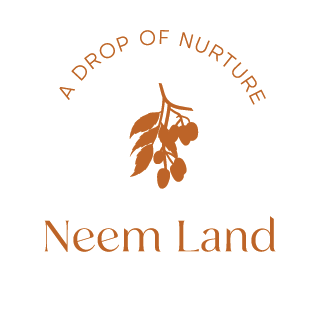Poultry, including chickens, ducks, and turkeys, plays a significant role in many households. To keep poultry healthy, it's essential to care for their well-being, including their skin and overall protection against various skin diseases, infections, and pests.

How Neem Oil Can Help Poultry:
-
Against Pests:
- Fleas and Ticks: Active ingredients in neem oil, such as azadirachtin, possess insecticidal properties that help control pests like fleas and ticks that can attack poultry.
- Flies and Mosquitoes: Neem oil can act as a natural repellent against flies and mosquitoes, reducing the discomfort they cause and the potential transmission of diseases.
-
For Skin Health:
- Dermatitis: Neem oil has anti-inflammatory properties that reduce skin inflammation and itching caused by dermatitis in poultry.
- Fungal Infections: The active components in neem oil can help treat fungal infections like ringworm and improve the condition of poultry skin.
-
Hydration and Feather Quality:
- Neem oil can help maintain the hydration of poultry skin, potentially reducing the risk of feather damage due to dry and brittle feathers.
-
Disease Prevention:
- Active ingredients in neem oil also possess antimicrobial properties that help prevent bacterial and fungal skin infections, reducing the risk of various diseases and ailments.
It's important to note that the proper application of neem oil to poultry is crucial for its effectiveness. Neem oil is typically diluted with a carrier oil, such as coconut or olive oil, to prevent skin irritation. The specific dilution ratio may vary, but a common ratio is 1 part neem oil to 10 parts carrier oil.
Red Mite Spray (Liquid): Red mites, or mites, are common external parasites on poultry that feed on the host animal's blood. Neem oil and neem cakes are used to combat various types of pests, including mites, to maintain poultry health and increase productivity. Here's how you can use these products:
Neem Oil:
-
Animal Spray: Dilute neem oil with water and use it to spray poultry. Apply this mixture to the feathers and skin of poultry.
-
Neem oil is typically diluted with water before spraying. A recommended ratio could be approximately 1 to 2 tablespoons of neem oil per 1 liter of water. You can use this mixture for spraying poultry. Repeat spraying every 2 to 4 weeks or as needed, depending on the severity of the problem.
-
Bedding Spray: You can also use diluted neem oil to spray the bedding in the poultry coop. This helps reduce the presence of pests in the environment.
-
Poultry Baths: Add neem oil to the water for poultry baths. This helps remove pests from the feathers and skin of poultry.
Dilute neem oil with water at a ratio of approximately 1:5. Baths can be used approximately once a week or as needed.
Neem Cake:
-
Feed Additive: Neem cake can be added to poultry feed. You can mix it with food or sprinkle it on the surface where poultry feed. Typically, about 1 to 2% neem cake in the food is suitable. This helps control internal parasites and maintain the health of the poultry's digestive system.
-
As Bedding Additive: Neem cake can be used as an additive to poultry bedding. Mites often inhabit bedding, so controlling them by adding neem cake can be effective.
Neem Oil Spray: Neem oil can be diluted with water and used as a spray for the skin and fur of domestic animals. This is often an effective way to use neem oil to protect goats from pests and improve skin health. Here's how you can do it:
Preparing Diluted Neem Oil: Take a few tablespoons of neem oil and mix it with the appropriate amount of water to create diluted neem oil. The dilution ratio can vary, but start with a ratio of 1 part neem oil to 10 parts water. Adjust the ratio based on your goats' needs and sensitivity.
Filling the Spray Bottle: Fill a spray bottle with the diluted neem oil. Use a spray bottle designed for even distribution of the liquid on the skin and fur of goats.
Spraying: Gently spray the diluted neem oil onto the skin and fur of the goats. Ensure even coverage of the entire body, especially areas where pests tend to gather.
Avoiding Sensitive Areas: Be careful not to come into contact with the areas around the goats' eyes and nose to prevent irritation.
Regular Use: Apply the diluted neem oil as needed for effective pest protection and improved skin health. The frequency of use can vary depending on the conditions and needs of your herd.
Diluted neem oil can help protect goats from various pests, including fleas, ticks, and mosquitoes, while enhancing overall skin health.
It's also essential to conduct a skin sensitivity test on a small area of the skin before applying neem oil to the entire body. Take care to avoid contact with the areas around the goats' eyes and nose. Regular use of neem oil, with guidance from a veterinarian, can contribute to the protection of goats from pests, the maintenance of their skin and fur, and the prevention of skin diseases.


